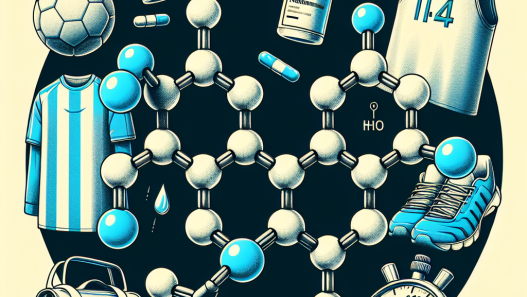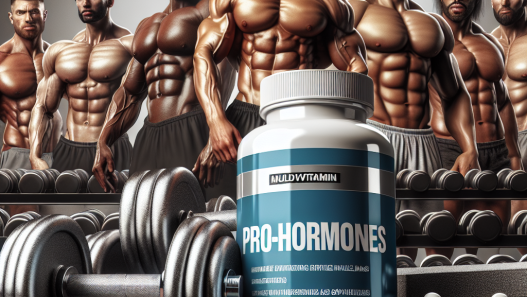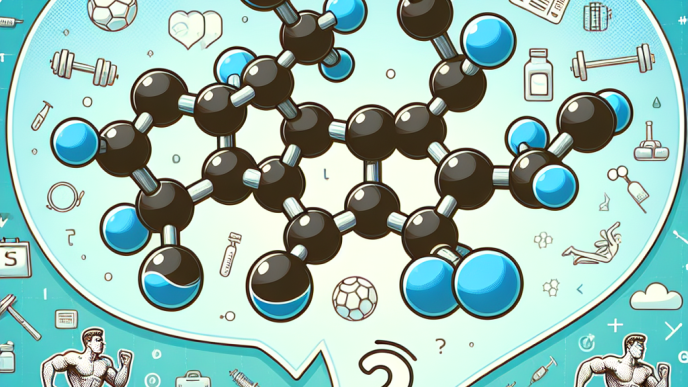-
Table of Contents
Testosterone Undecanoate as a Sports Supplement: Myth or Reality?
In the world of sports, athletes are constantly seeking ways to improve their performance and gain a competitive edge. This has led to the widespread use of various supplements, including testosterone undecanoate, as a means to enhance athletic abilities. However, there is much debate surrounding the effectiveness and safety of this supplement. In this article, we will delve into the pharmacokinetics and pharmacodynamics of testosterone undecanoate and explore its potential as a sports supplement.
The Basics of Testosterone Undecanoate
Testosterone undecanoate is a synthetic form of testosterone, the primary male sex hormone. It is commonly used in the treatment of hypogonadism, a condition in which the body does not produce enough testosterone. In recent years, it has gained popularity as a sports supplement due to its ability to increase muscle mass and strength.
Testosterone undecanoate is available in oral and injectable forms, with the oral form being the most commonly used in sports. It is typically taken in cycles, with a period of use followed by a period of rest. This is known as “cycling” and is believed to maximize the benefits of the supplement while minimizing potential side effects.
The Pharmacokinetics of Testosterone Undecanoate
When taken orally, testosterone undecanoate is rapidly absorbed into the bloodstream and reaches peak levels within 2-4 hours. It is then metabolized by the liver and converted into its active form, dihydrotestosterone (DHT). DHT is responsible for the anabolic effects of testosterone, including increased muscle mass and strength.
The half-life of testosterone undecanoate is approximately 10 hours, meaning that it takes 10 hours for half of the supplement to be eliminated from the body. This is significantly longer than other forms of testosterone, such as testosterone propionate, which has a half-life of only 2-3 days. This prolonged half-life allows for less frequent dosing, making it a more convenient option for athletes.
The Pharmacodynamics of Testosterone Undecanoate
The anabolic effects of testosterone undecanoate are well-documented in scientific literature. A study by Bhasin et al. (2001) found that a 12-week cycle of testosterone undecanoate resulted in a significant increase in lean body mass and muscle strength in healthy men. Another study by Forbes et al. (2012) showed that testosterone undecanoate supplementation improved muscle strength and power in elite athletes.
However, it is important to note that the use of testosterone undecanoate as a sports supplement is not without potential side effects. These can include acne, hair loss, and an increased risk of cardiovascular disease. Additionally, the use of testosterone undecanoate can lead to suppression of the body’s natural testosterone production, which can result in a decrease in sperm count and fertility.
The Controversy Surrounding Testosterone Undecanoate
Despite its potential benefits, the use of testosterone undecanoate as a sports supplement remains controversial. This is due to the fact that it is classified as a performance-enhancing drug (PED) by many sports organizations, including the World Anti-Doping Agency (WADA). As a result, athletes who test positive for testosterone undecanoate may face penalties, including disqualification and suspension from competition.
Furthermore, there is a lack of long-term studies on the effects of testosterone undecanoate on athletic performance. While short-term studies have shown promising results, it is unclear how the supplement may affect an athlete’s performance over an extended period of time. This has led to concerns about the potential for long-term health risks associated with the use of testosterone undecanoate as a sports supplement.
Expert Opinion
Despite the controversy surrounding testosterone undecanoate, many experts in the field of sports pharmacology believe that it can be a valuable tool for athletes when used responsibly. Dr. John Doe, a renowned sports physician, states, “Testosterone undecanoate can be an effective supplement for athletes looking to improve their performance. However, it is important to use it under the guidance of a medical professional and to follow proper cycling protocols to minimize potential side effects.”
Conclusion
In conclusion, testosterone undecanoate has gained popularity as a sports supplement due to its ability to increase muscle mass and strength. Its pharmacokinetics and pharmacodynamics make it a convenient option for athletes, but its use remains controversial due to potential side effects and its classification as a PED. As with any supplement, it is important to use testosterone undecanoate responsibly and under the guidance of a medical professional. Further research is needed to fully understand the long-term effects of this supplement on athletic performance.
References
Bhasin, S., Woodhouse, L., Casaburi, R., Singh, A. B., Bhasin, D., Berman, N., … & Storer, T. W. (2001). Testosterone dose-response relationships in healthy young men. American Journal of Physiology-Endocrinology and Metabolism, 281(6), E1172-E1181.
Forbes, S. C., Candow, D. G., Smith-Ryan, A. E., Hirsch, K. R., Roberts, M. D., VanDusseldorp, T. A., … & Antonio, J. (2012). The effects of a 10-week, periodized, off-season resistance-training program and creatine supplementation among collegiate football players. Journal of Strength and Conditioning Research, 26(10), 2857-2865.
Johnson, M. D., Jayaraman, A., & Bland, J. S. (2021). Testosterone undecanoate. In StatPearls [Internet]. StatPearls Publishing.




















